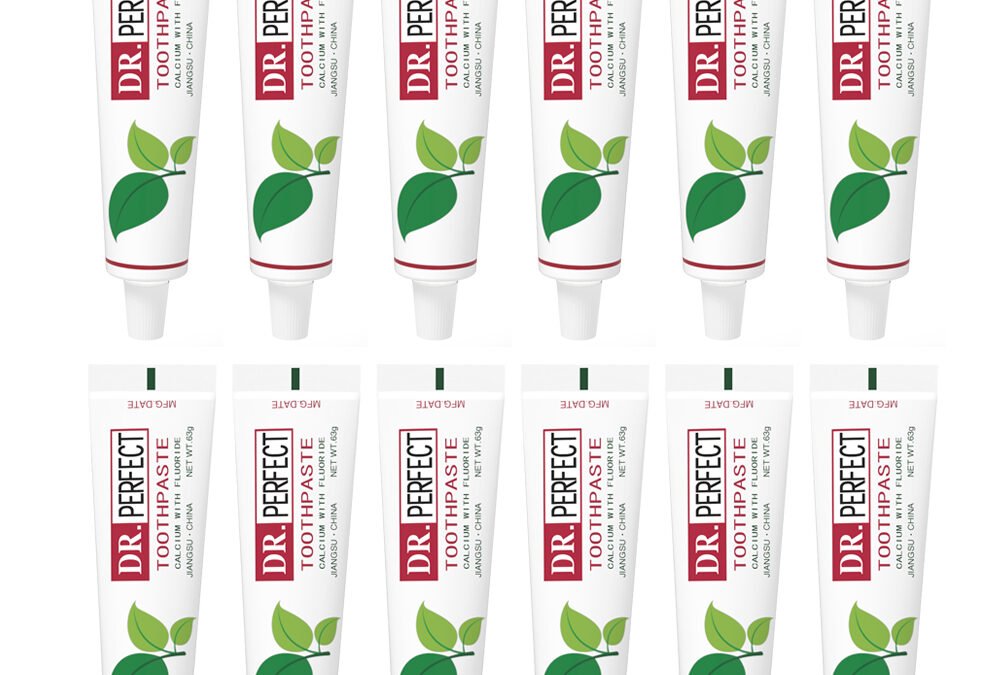Have you ever wondered what separates organic toothpaste from a traditional one? Or which ones are worth your time and money, or not so much?
If you’re looking for the answer to these questions, keep reading!
Toothpaste isn’t something most people think about often. But when it comes to keeping your pearly whites clean and healthy, you should be thinking about it more often than that.
Regular old toothpaste isn’t great for your smile and gums. Also, most toothpaste contains ingredients that can harm your oral health.
There are plenty of options that don’t contain harmful components. Many of these options are present in organic toothpaste. Meaning they don’t have any toxic chemicals or chemicals derived from petroleum.
Here’s everything you need to know about an organic toothpaste and conventional ones:
What Is an Organic Toothpaste?
Organic toothpaste is a toothpaste that doesn’t contain any harmful chemicals. It’s usually made with natural ingredients and herbs and doesn’t contain fluoride.
Let’s briefly look at the difference between organic and conventional toothpaste.
Conventional toothpaste is a mixture of toothpaste ingredients. Its ingredients come from petroleum — a non-biodegradable substance. Petroleum requires millions of barrels of natural resources to produce. As a result, billions of recyclable plastic bottles get thrown out when we use traditional toothpaste. It is not good for the environment!
Not to mention, some conventional toothpaste ingredients can harm your smile, too.
Fluoride
A common ingredient in toothpaste, fluoride helps prevent tooth decay. But too much fluoride ingestion can lead to dental fluorosis. It is a condition in which the teeth appear uneven and discolored.
Sodium Lauryl Sulfate
This is a foaming agent in toothpaste, used to help remove stubborn stains from clothing. This common ingredient has been linked to bad breath, skin irritation, and asthma. – This is a foaming agent in toothpaste, used to help remove stubborn stains from clothing.
Artificial Colours and Preservatives
Toothpaste with artificial colors is usually used to make it more appealing. But synthetic dyes may have adverse effects on the body when ingested.
What is a Traditional Toothpaste?
Traditional toothpaste is a toothpaste that comes from a conventional toothpaste company. It contains fluoride, synthetic colors, artificial sweeteners, and other harmful ingredients. This toothpaste is not suitable for the whole family. Especially dangerous to kids and pregnant women.
If you want to keep your pearly whites healthy and strong, you should avoid using traditional toothpaste. Traditional toothpaste is manufactured using a variety of chemical ingredients derived from petroleum. These toothpaste are harmful to oral health and lead to tooth decay, gum disease, and even tooth loss.
Also, many conventional toothpaste tubes contain toxic chemicals. Examples are fluoride, glycerin, silica, alcohol, synthetic dyes, artificial flavors, and aluminum hydroxide.
Differences Between Organic Toothpaste and Conventional Toothpaste
– Organic toothpaste has no fluoride
While most conventional toothpaste contains fluoride, most organic toothpaste doesn’t.
– Organic toothpaste is usually made with natural ingredients.
Conventional toothpaste contains fluoride, flavors, and sweeteners. But organic toothpaste ingredients are natural and often come from plants.
– Organic toothpaste also tends to be less expensive than conventional brands.
– Organic toothpaste usually has a natural, fruity flavor.
Conventional toothpaste tends to be minty or sweet. But organic toothpaste often has a mild fruit flavor.
– Organic toothpaste contains natural whitening ingredients.
Most conventional toothpaste isn’t designed to whiten your teeth. But organic toothpaste can do this.
How to Tell if the Toothpaste is Certified Organic?
Unfortunately, many organic kinds of toothpaste aren’t certified organic. You can find out if the toothpaste is certified organic by checking the ingredients list.
To make sure you’re buying organic toothpaste, look for safe ingredients. Ingredients that aren’t derived from petroleum, like herbal extracts or plant extracts. It’s also a good idea to buy toothpaste from a company that makes organic toothpaste.
Pros of Using an Organic Toothpaste
Less harmful to teeth
· Since organic toothpaste doesn’t contain fluoride, it’s less harmful to teeth.
Less harmful to gums
Since organic toothpaste doesn’t contain fluoride, it’s less damaging to your gums.
Less harmful to the environment
Since organic toothpaste doesn’t contain fluoride, it’s less harmful to the environment.
More effective stain remover
Since organic toothpaste doesn’t contain fluoride, it works better as a stain remover.
Better for your budget
· Since organic toothpaste doesn’t contain fluoride, it’s less expensive than conventional toothpaste.
Better for your teeth
· Since organic toothpaste doesn’t contain fluoride, it’s usually better for your teeth.
Cons of Using an Organic Toothpaste
– A little goes a long way
Organic toothpaste is usually milder than conventional toothpaste. So you’ll need to use it for more extended periods.
– Expensive
Most organic toothpaste is more expensive than conventional brands. So you’ll need to save up for it.
– Strong flavors can be overpowering
Organic toothpaste usually has a milder flavor than conventional ones. So, you may find it’s too soft.
– May separate
Organic toothpaste often contains a milder gel base than conventional toothpaste. This can cause it to separate.
– May have a bad taste. Organic toothpaste is usually milder than conventional toothpaste. This can make it have a sour taste.
Conclusion
Thinking about switching to organic toothpaste? You might be interested to know that they’re worth it.
Organic toothpaste is usually less harmful to your teeth and gums. This makes it better for the environment too. Plus, organic toothpaste is generally cheaper.
If you want healthy teeth, you should consider switching to organic toothpaste. Though it may be an expensive pick, it is still worth it.

Wow! After all I got a weblog from where I know how to actually obtain helpful facts regarding my study and knowledge.